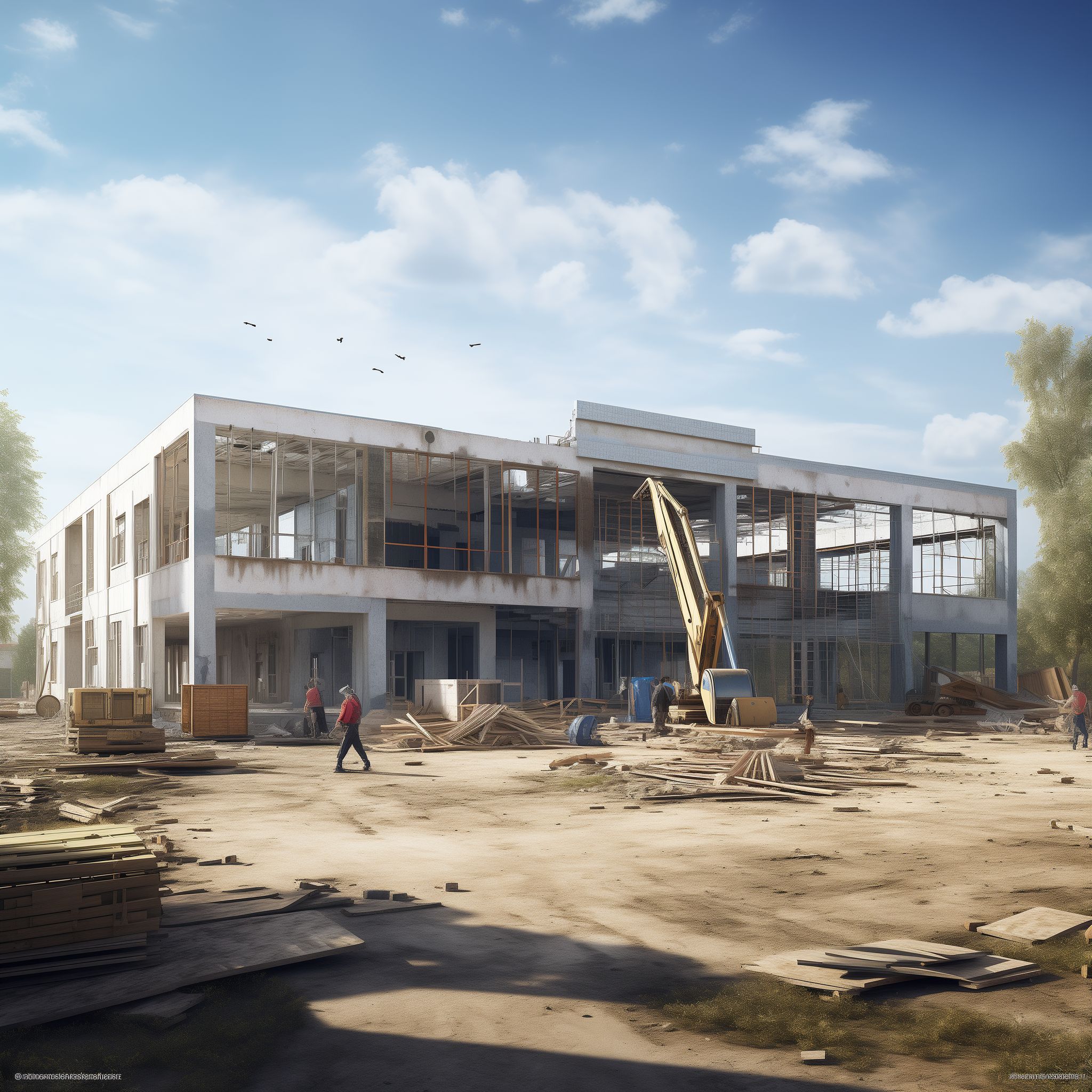


In the ever-evolving world of construction, the pressure to deliver quality, safety, and longevity in projects is paramount. Amidst the hustle of cranes and concrete, there lies an unsung hero of the built environment - the peer review process. This systematic examination by one or more experts in the field ensures that construction projects meet the highest standards before they even break ground. As we delve into the rabbit hole of scaffolding and blueprints, we will uncover how peer review acts as a cornerstone, bolstering project integrity for architects, contractors, developers, and all stakeholders involved.
Quality and accuracy are the backbones of any successful construction project. Peer reviewers offer a fresh set of eyes to critically assess the plans, calculations, and specifications. They not only guarantee that designs adhere to current codes and practices but also enhance the overall project by recommending improvements and identifying potential issues before they become costly mistakes.
The safety of the end-users and those involved in a construction project is of utmost concern. Peer reviews proactively evaluate the soundness of structural designs, the integration of fire protection systems, and other safety measures. This external scrutiny is not just a checkpoint but a critical analysis that reinforces the importance of safety in design and execution, thereby significantly mitigating risks.
Regulatory compliance can be a complex labyrinth. Peer reviewers possess the expertise to navigate these requirements, ensuring that designs comply with local, national, and international regulations. This step is crucial for obtaining construction permits smoothly and avoiding legal repercussions or project delays down the line.
Peer reviews often lead to innovative solutions to challenging problems. By engaging experts from various disciplines, the process becomes a melting pot of ideas, promoting sustainable practices, and cutting-edge techniques that can elevate a project's design, efficiency, and environmental footprint.
The selection of peer evaluations should align with the project's scope and complexity. It's essential to ensure that they have the right qualifications and experience to provide meaningful and constructive feedback. An expert specializing in high-rise structures might not be suited for a single-family home project. The right match is crucial for an effective review.
In-Depth Analysis and Reports
Once on board, reviewers dive deep into the project's documentation. They meticulously examine drawings, specifications, engineering calculations, and other relevant materials. The output is a comprehensive report highlighting commendable aspects and, more critically, areas of concern that need immediate attention or revisions.
The purpose of a peer review is not simply to criticize but to collaborate. Reviewers work closely with the design team, offering guidance that can lead to improved outcomes. Through workshops, meetings, and ongoing communication, this collaborative approach ensures that solutions are found and implemented effectively.
Confidence Stakeholders, including financial institutions, insurers, and potential buyers, place high trust in projects that undergo peer review. This professional endorsement serves as a seal of quality and reliability, often easing the path to investment and acceptance in the market.
Resolving issues during the design phase is undoubtedly more economical than fixing problems during construction or, worse, post-construction. Through early detection, the peer review process can save a project from spiraling budgets and unfavorable outcomes.
Peer-reviewed projects often boast superior performance, longevity, and adaptability. This long-term foresight can translate into better lifecycle costs, fewer repairs, and more sustainable structures -- a win for both the client and the environment.
Discover the importance of peer review in construction projects with Developers Research! We offer valuable insights into its critical role in ensuring project success and safety. Our services assess project intricacies, identify risks, verify compliance, and enhance quality. Architects, Contractors, Owners, and Developers can benefit from our expert analysis. Visit our website to elevate your projects and trust us as your reliable partner for success, safety, and quality!
Visit our website to discover how Developers Research can elevate your construction projects to new heights. Trust us to be your reliable partner in ensuring the success, safety, and quality of your endeavors.
Peer evaluation is a process where individuals assess and provide feedback on the performance, work, or contributions of their peers. It involves the review and appraisal of a peer's work based on predetermined criteria or standards.
Peer review can play an integral part in sustainable construction practices by identifying opportunities for incorporating eco-friendly materials, energy-saving designs and cutting edge technologies into projects. This helps ensure they not only comply with current sustainability standards but also contribute positively to environmental protection.
Peer evaluation in construction projects serves to enhance quality, safety, and compliance by identifying potential errors, omissions or discrepancies and correcting them - leading to higher standards of construction overall.
Peer review should take place throughout the project life cycle, including during design and before construction begins. Reviews can also take place at specific milestones to make sure any modifications or changes remain aligned with original goals and standards of the project.
Yes, peer review is applicable to renovation or retrofitting projects as well. It is crucial to assess the existing structure and plans to ensure that any modifications or improvements meet industry standards and comply with regulatory requirements.
Peer evaluation in construction projects is an investment in excellence. It provides a systematic method for scrutinizing, validating, and refining project designs before construction begins - giving stakeholders confidence that their project has met all applicable safety, quality, and compliance standards.
Adopting the peer review process as an architect, contractor, developer or anyone involved with construction can help elevate craftsmanship and ensure responsible construction practices. Planning is what determines the quality of our skylines in future years. Peer review offers many complexities for those wishing to delve deeper. There are countless resources, industry seminars and professional consulting services that can provide additional illumination of this process. As construction continues to change and innovate, so must its commitment to rigorous reviews and high standards.